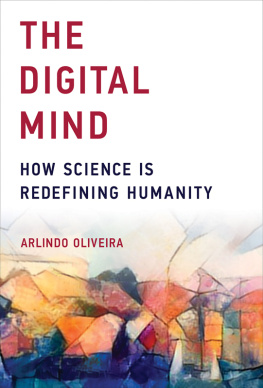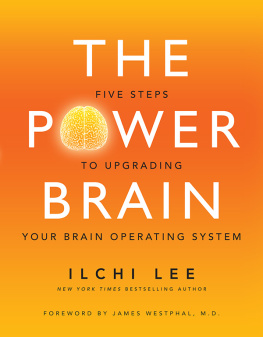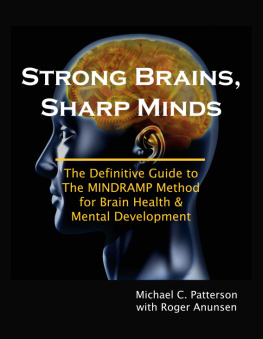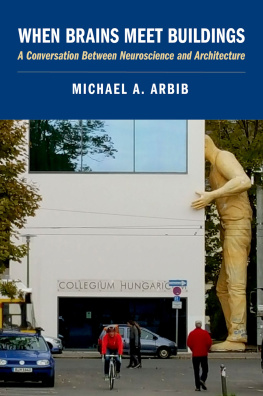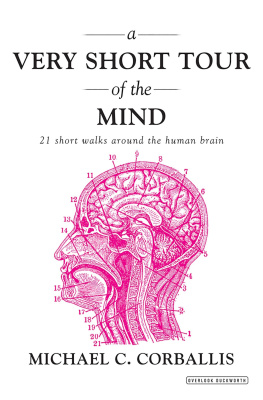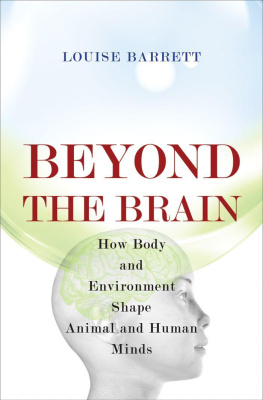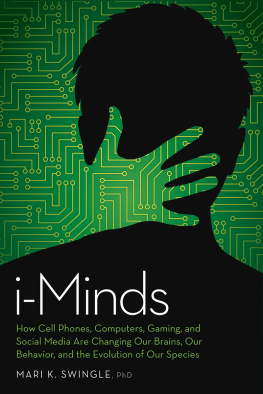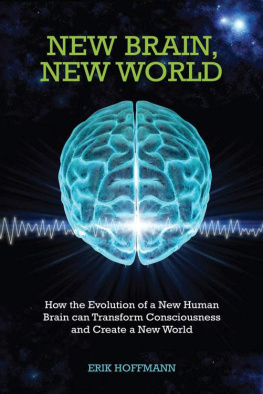
The Digital Mind
How Science Is Redefining Humanity
Arlindo Oliveira
The MIT Press
Cambridge, Massachusetts
London, England
2017 Massachusetts Institute of Technology
All rights reserved. No part of this book may be reproduced in any form by any electronic or mechanical means (including photocopying, recording, or information storage and retrieval) without permission in writing from the publisher.
Set in Stone Sans and Stone Serif by Toppan Best-set Premedia Limited. Printed and bound in the United States of America.
Cataloging-in-Publication information is available from the Library of Congress.
ISBN: 978-0-262-03603-0
eISBN 9780262338387
ePub Version 1.0
to Ana Teresa
Foreword
Computers are as inert in their physical form as they are useless as thinking machines. Or so we might have thought a long time ago. Never the author of this book, however. For many years, decades now, he has been known to derail perfectly balanced conversations to point out signs that the same natural processes that drive the evolution of living systems are taking residence in the new digital realms. As time went by, the signs became more momentous and the outcome more strangely wonderful. Those who were startled by one of these derailed conversations (as I was) will, ever after, yearn for more. After all, Arlindo should know. His distinguished academic career straddles the whole gamut, from circuit design to machine learning, and increasingly so in a biological context. It is therefore not a surprise that he has a lot to say about the future of thinking machines. But, as the reader of this book will discover, there is more herea lot more.
As a student in computer science at Berkeley, Arlindo also completed a minor in neurosciences. At some point I congratulated him for the foresight of what looked to me like a solid interdisciplinary foundation for his subsequent achievements. He characteristically dismissed this minor as a not very useful impulse of his youth. Indeed, even then, he already had questions about digital minds that would just not go away. The answers about cognition he got then simply did not compute, quite literally. As you will find throughout this volume, the author is happy to speculate, but always within clear sight of computable explanations and historic context. And I dont mean just computable in principle, there has to be a trail back to the component circuitry. As a biologist, this compulsion is familiar territory. The understanding of complex processes invariably includes components at multiple scales, from genes, to cells and all the way to ecosystems. The same systemic discipline guides this voyage toward digital minds. Artful storytelling alone does not cut it. It would be not very useful.
So we now find ourselves upheaved by a digital storm that pervades everything we sense and do. The new gadgetry, and the cloud that supports it, confine how we communicate as much as they expand how broadly we reach. More importantly, in our more mindful moments, this digital machinery enables us to see previously unfathomed horizons. The neurosciences now have a lot more to say about how our minds compute, by anticipating sensorial input with a mixture of innate and experientially learned models. And as one would expect, thinking about sensing the sensor strains our minds just as recursion challenges our digital machines. The boundaries between organic and inorganic are clearly no longer as divisive when it comes to mindful computation. These are the moments when one looks for these conversations with Arlindo, once more, maybe with the pretext of a game of Chess or Go (dont hold your hopes too high!). These are the questions he has been probing and practicing for decades in the computational realm. He should write a book about it.
The last paragraph could have been a good ending for my foreword. However, this book has two surprising final chapters about what we are getting ourselves into. They go one step beyond what digital consciousness may be and how inevitably the process will unfold. This book is organized chronologically, as a novel, so I should not spoil the ending here. As in any good book, along the way we collect answers to our own questions, not just the authors. I, for one, couldnt resist seeing the emergence of digital creatures, and of digital minds, as part of the same homeostatic drive that propels biological evolution into ever more complex constructs. What better way to build digital machines that can handle the vagaries of a complex world than to have them also able to think it over. Digital or not, minds may just be the inevitable outcome, as the book explains. The physicist may instead be tempted to see symptoms of the informational nature of more atomic vehicles. Either way, our digital present looks ever more as the seed to a more mindful digital future.
One last word, this time of caution. If you have teenagers at home, make sure to finish the book before revealing its existence to the rest of the family. In more ways than we may be comfortable with, this book was really written for a new generation. If my own children offer some guidance, they may find in this volume the missing explanation for how we got them into this ever digitizing predicament. In that case, they will be as perplexed as we are about how oblivious we have been to the strangely wonderful and inevitable outcome. In other words, you may have trouble getting the book back. Maybe tell them there is a blog too.
Jonas Almeida
Preface
The seemingly disparate subjects of computer science, biology, and neuroscience have always fascinated me and, in one way or another, have always influenced my life and career choices. The attentive reader will notice that this book is, mainly, a collage of many ideas about these subjectsideas I have encountered during the past three decades. The majority of these ideas come from the many talented writers, scientists, and philosophers I have met, sometimes in person but mostly through their works.
The book is somewhat redundant in a way; to understand the topics covered, you could go directly to the original sources. Nonetheless, I believe not many people have walked through life exactly the way I have, and have not had the opportunity I have had to encounter some of these fascinating places, thinkers, and concepts.
I became attracted to math and science early in my life. I always wanted to know how things worked, and studying science looked like an easy way to make a living doing exactly what I wanted to do. As a young boy, I was fascinated by science. I spent years playing with chemistry sets. The concept of a safe chemistry set had not yet been invented, and my days were spent concocting new ways to combine chemicals in order to obtain explosive or otherwise dangerous combinations. Flasks, test tubes, beakers, and other chemical apparatus would break, collapse, explode, or simply be made useless by our unguided and exploratory approach to chemistry, but the process provided me and my friends with an endless source of recreation. Furthermore, it looked like science to us.
A few years later, after buying some books and magazines devoted to do-it-yourself electronics, I assembled my first electronic circuits by the blind and laborious process of painstakingly buying individual electronic components and assembling them in accordance with nearly incomprehensible diagrams drawn by people who, unlike me, knew what they were doing.
In the late 1970s, it became possible to acquire a very primitive version of a personal computer. After acquiring a few even more primitive machines, I became the proud owner of a Sinclair ZX Spectrum. The ZX Spectrum, a small personal computer with 48 kilobytes of memory and an integrated keyboard, was a prodigy of the technology at the time. It used a television set as a display. It could be programmed in a dialect of the Basic programming language. It had no permanent memory, and any new program had to be saved to tape on a standard tape recorder. As often as not, depending on the quality of the tape and that of the recorder, I would fail to recover the saved program, but that didnt deter me from spending my days programming it. Working with the ZX Spectrum was my introduction to programming, and I was hooked on computers for life.
Next page
